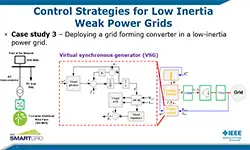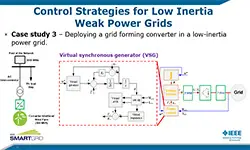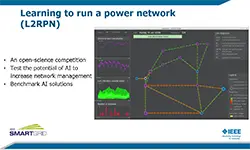Edge computing: Use Cases and Benefits for Electrical Grids
Michel Bena, Clement Paris, Jacques Martin, Guillaume Giraud, Abdourrahmane Chraibi, Philippe Lalanda, Sandra Castellanos-Paez, Regis Le Drezen,
-
Members: Free
IEEE Members: $11.00
Non-members: $15.00Length: 1:30:00
15 Dec 2022
At a time when the electricity system is becoming increasingly decentralised, with a growing share of intermittent renewable production spread over the territory, the collection of relevant data, its processing and its valorisation are becoming a key issue for grid operators. The development of IoT technology also opens up new perspectives for grid stakeholders.Edge computing technologies can have many applications for smart grids. The exploitation of data as close as possible to their source of emission has indeed clear advantages to support the decentralisation of the operation of the electricity network.The webinar will present the concept of edge computing, its applications for smart grids, illustrated by concrete use cases. The panelists will explain the benefits (performance and resilience, reduced cloud and telecommunication costs, new services, less private data uploaded, etc.), but also the challenges (cybersecurity, additional complexity, skills, industrial challenges, etc.).=> While the energy transition implies a decentralisation of the operation of the electrical system, edge computing opens up new prospects for the development of smart grids.


